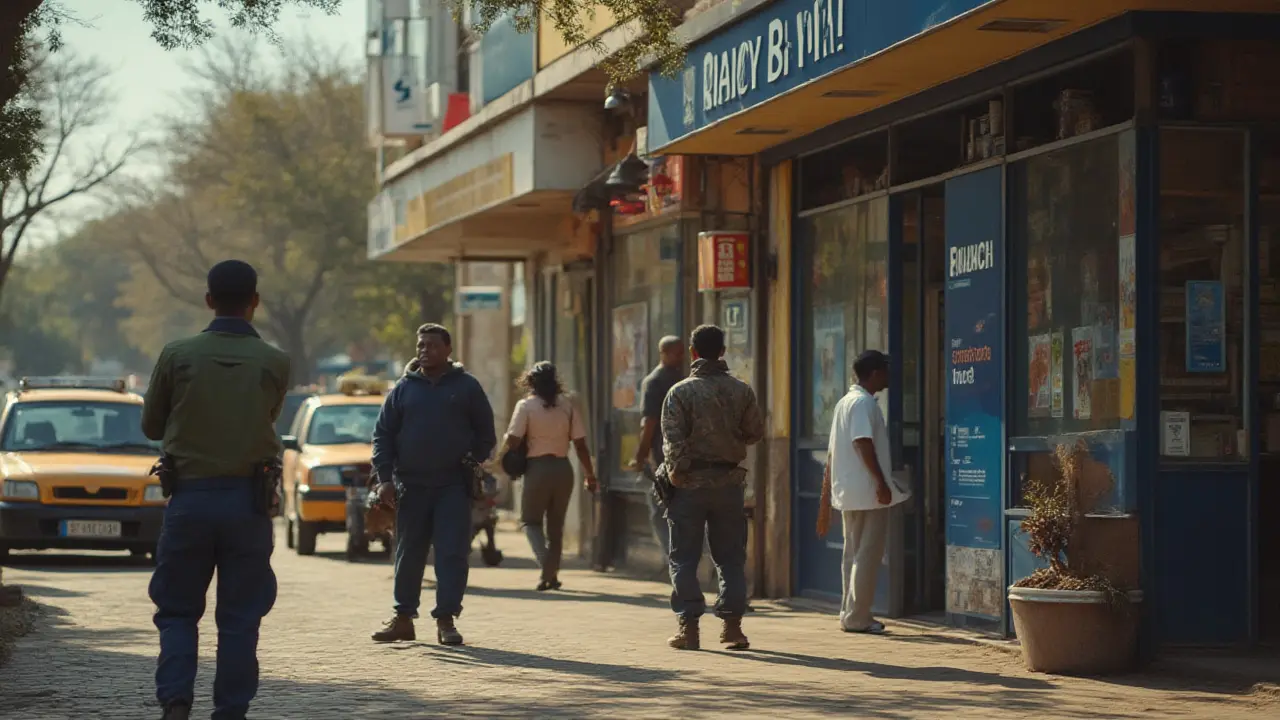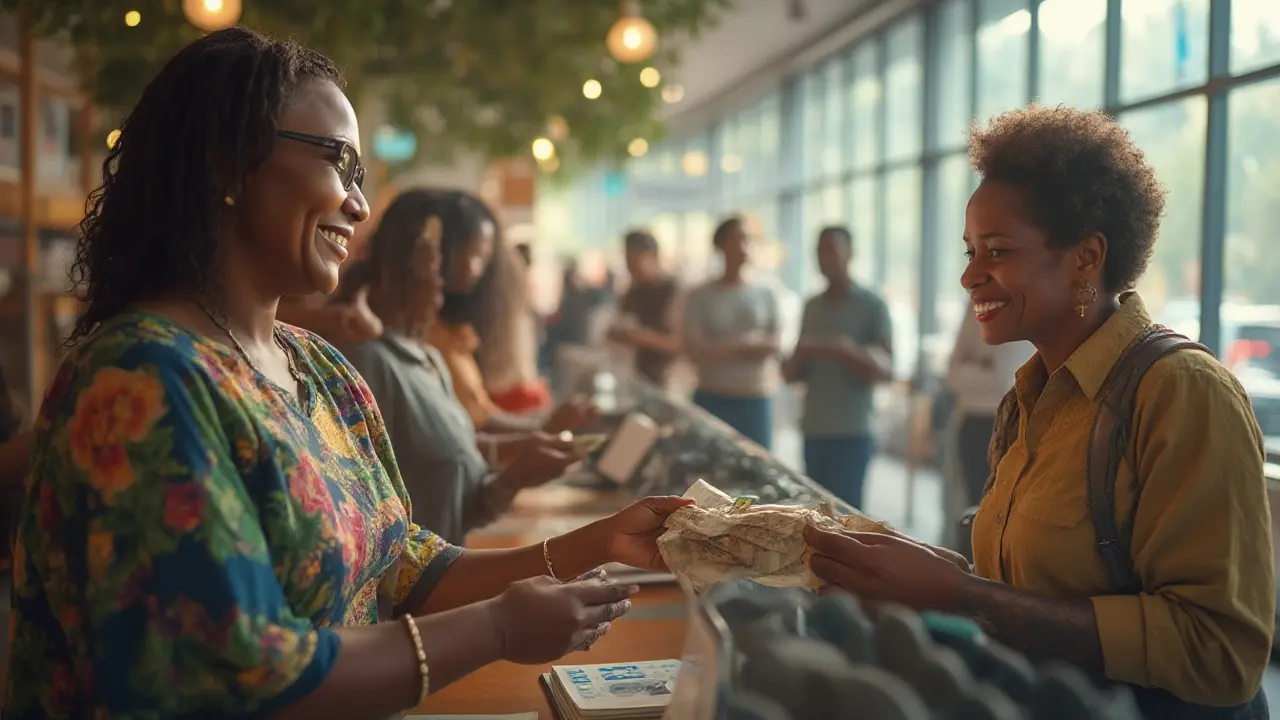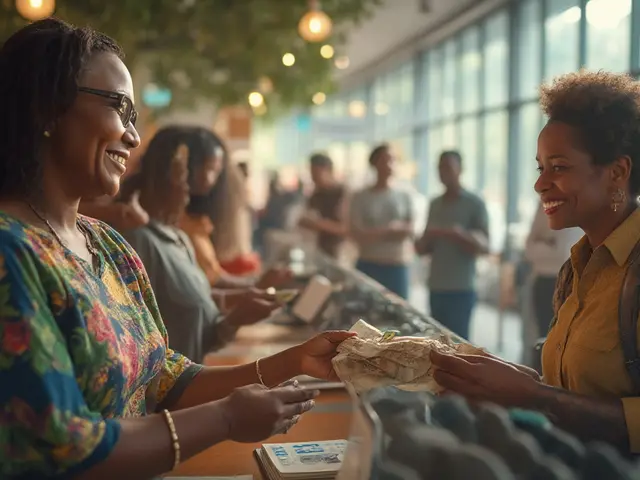Stuffing $50,000 in cash into your backpack might sound like something out of a movie, but people do show up at banks with big wads of bills—inheritances, car sales, old piggy banks cracked open. It happens more often than you’d think. If you ever find yourself holding that kind of cash, a simple deposit might feel scarier than it should. Are you about to set off alarms? Will you get grilled by the teller? Could your money get frozen? Let’s unravel what really goes on when you walk into a bank with $50,000 in cash, and what it means for your day, your money, and your peace of mind.
How Do Banks Handle Large Cash Deposits?
Handing over $50,000 in bills isn’t exactly grabbing a coffee and swiping your phone to pay. When cash like that hits a teller’s counter, there’s a set of rules and steps the bank has to follow. Here’s how it works—and why.
First off, banks are bound by the law—specifically, the Bank Secrecy Act in the United States and similar regulations in places like the UK, Canada, and Australia. These rules were set up originally to fight money laundering, terrorism financing, tax crimes, and a bunch of other unsavory stuff. The main idea: keep tabs on any unusually large or suspicious money movement.
So, banks have a magic number: $10,000. If your cash deposit (not check, not wire, but actual paper money) is $10,000 or more in a single day, the bank is legally required to fill out a form called a Currency Transaction Report (CTR). Jumping in with $50,000 means there’s absolutely no way around reporting. Your deposit triggers this form. It goes straight to the Financial Crimes Enforcement Network (FinCEN), which is part of the U.S. Treasury, or a similar watchdog in other countries.
What does the bank want to know? They’ll look at:
- Your identification (government-issued ID, usually a driver’s license or passport)
- Your occupation and where the cash came from (sometimes they’ll ask in plain language—"Can you tell us what this money’s for?")
- The purpose for the deposit and the relationship to your account
They don’t always ask where every dollar came from, but with a huge amount, expect some polite questions. Don’t take it personally—it’s just banking rules. They’ll also count your cash in front of you and probably run it through a machine that checks for counterfeit bills.
A fun fact: According to FinCEN’s own numbers, banks filed over 16 million CTRs in 2023 alone. Most of them turn out to be completely boring and legal. A few do flag actual financial crimes, but for the average person (or even businesses), a big deposit like yours is just part of the system.
Is your money safe? Yes, as long as you’ve got legitimate cash—maybe from selling a car, a legacy from an old uncle named Bob, or poker night (assuming that’s legal where you live)—and you can honestly answer their questions. But your deposit might not be available instantly. The bank could put a temporary hold, especially if the bills are old, unusually dirty, or trigger suspicion (like if you show up with a stack of $10 bills sealed with duct tape—it does happen!).
Remember: Making several smaller deposits to "avoid" the $10,000 line is called structuring. That’s 100% illegal and could actually get you in trouble even if you weren’t doing anything shady with the money. Law enforcement and banks watch out for that. It’s usually safer (and a lot less stressful) to deposit the whole chunk and be upfront. When in doubt, ask your bank’s branch manager or financial advisor what they need to make the process smooth.

What Happens After You Deposit ,000 Cash?
Once you hand over your $50,000, things don’t just go quiet. The bank follows through with the paperwork, and systems kick into gear both behind the scenes and sometimes in plain sight.
That CTR form will go off to the regulators. This report includes your information, your account details, and sometimes notes describing the transaction. The data sits in government computers, cross-checked with things like tax filings or criminal probes. The vast majority never go anywhere further, because most big deposits are legitimate. According to a 2024 study by the American Bankers Association, fewer than 2% of large cash deposits end up with follow-up action by authorities—but that tiny percentage is why the law exists.
How long before your money is available? Here’s where things can get a bit annoying. Most banks—think Chase, Wells Fargo, or Bank of America—will count and credit your deposit the same day, but they may put a hold on all or part of it for a couple of days. The typical hold for large cash can be 1-3 business days, especially if you’re a new customer, your account is dormant, or the source of funds seems unclear. If your account’s in good standing and you’ve made big deposits before, you could see the whole amount available within hours.
| Bank | Same Day | 1 Day Hold | 2+ Day Hold |
|---|---|---|---|
| Bank of America | 20% | 50% | 30% |
| Chase | 30% | 45% | 25% |
| Wells Fargo | 25% | 55% | 20% |
Some credit unions and regional banks take longer because they need to get the cash shipped out or verified. Either way, don’t plan on taking out $45,000 from the ATM that night.
One perk that surprises people: There’s usually no extra fee for large cash deposits at most banks, but if you stand at the teller line with a literal duffel bag, prepare for extra checks and maybe a manager to step in. Some countries, like France, actually put caps on cash deposits for individuals (usually around 10,000 euros) and may charge fees for large sums.
What about the IRS or tax authorities? Here’s a tip for those who don’t want surprise letters: If the cash is income (say, you sold a bunch of old antiques online, or did work "off the books"), you’re supposed to report it as income on your tax return. If it’s after-tax savings, inheritances, or you can prove the cash is from a legitimate sale, you’re in the clear. But large cash deposits that don’t match your income could eventually trigger questions—even years later. That’s because banks keep records of these reports forever, and so do the authorities.
Security-wise, banks treat large cash handling with extra care. Most branches have extra security systems—cameras, sometimes guards, locked cash rooms. If you deposit bills that look suspicious or damaged, they might keep them for inspection. In rare cases, if there’s a question about where the cash came from (say, you walk in with bills that smell like gasoline or are sticky with syrup), the bank may file a separate Suspicious Activity Report (SAR), which can prompt a deeper look or law enforcement getting in touch. About 85% of SARs never lead to crimes, but the 15% that do often uncover things that the person depositing money wasn’t even aware of.
So, can you lose the money? Not if you’re honest. But always keep your deposit slip, tracking number, and a copy of your ID. If you’re ever asked about the deposit—even months later because of a tax audit—it’s a breeze to show the paperwork and avoid stress.

Smart Tips and Real-World Advice for Large Cash Depositors
Walking into a bank with $50,000 in cash isn’t an everyday thing. So, if you want to keep things smooth and stress-free, here’s what you need to know (mostly things I’d tell my son Malachy so he won’t trip up):
- Call the bank ahead of time. Some branches freak out a little if you just drop a giant stack of cash on the counter at 2 pm on a Friday. Let them know you’re coming—they’ll tell you the best hour and what paperwork or ID to bring.
- Count your money before you arrive. This sounds basic, but with fifty grand in bills, it’s easy to lose track. Banks will count it in front of you, but mistakes can happen. Knowing your number avoids awkward math debates.
- Don’t try to "fly under the radar" with smaller deposits. Remember, breaking up your deposit (like $9,900 this week, $9,900 next week, and so on) is called structuring and is illegal. It raises more red flags. Just make one honest deposit.
- Have proof of where the money came from. The bank might not ask, but if the IRS or local authorities ever follow up, being ready with a bill of sale, inheritance letter, withdrawal receipt, or any paper trail you have can save heaps of trouble later.
- Watch your personal safety. Don’t walk past a crowd showing your envelope bulging with bills. If you feel nervous, ask the bank for an escort from the parking lot.
- Ask about deposit holds and funds availability straight away. Don’t assume you’ll have the whole $50,000 in your checking account right after the deposit—especially if you need the money soon to pay off bills or debts.
- Keep all your paperwork. That means the deposit receipt, any forms you sign, and a note of who helped you. If anything goes sideways, you’ll be glad you did.
- Remember bank insurance limits. FDIC covers up to $250,000 per depositor, per account type, per bank in the US. For huge deposits, spread the cash among several accounts if needed to keep every dollar protected.
There are other things people don’t talk about. For example, if you’re depositing a lot of older bills, some banks use high-speed sorting machines that sometimes reject worn notes or old versions. These might not credit right away. Or maybe you’re a business owner with a lot of customer cash flow—banks may ask about cash handling procedures or armored car services for safety and to speed things up.
Here’s another twist: You may get offers for "private banking" or financial planning help after dropping cash like this. Banks notice big movers, and some branches might flag you for specialized services. If you’re looking to invest, get better savings rates, or have perks like travel deals, now’s a good time to ask.
Lastly—don’t be shy if you feel uneasy or embarrassed about handling big cash. Many people do it for totally legitimate reasons, and the banking system is ready for it. I once had a friend who inherited a bunch of old $100 bills from a late uncle, dusty and wrapped in newspaper. The teller just asked a few polite questions, smiled, and thanked him for the honesty. Three days later, the deposit cleared without a hitch.
The key is transparency, planning, and knowing the rules. Take it seriously (you don’t want to risk a legal headache), but don’t lose sleep over it either. The system’s designed to protect honest folks, and knowing what to expect takes the fear out of dropping $50,000 on the counter. Who knows—you might even find a free lollipop among the paperwork.













Write a comment